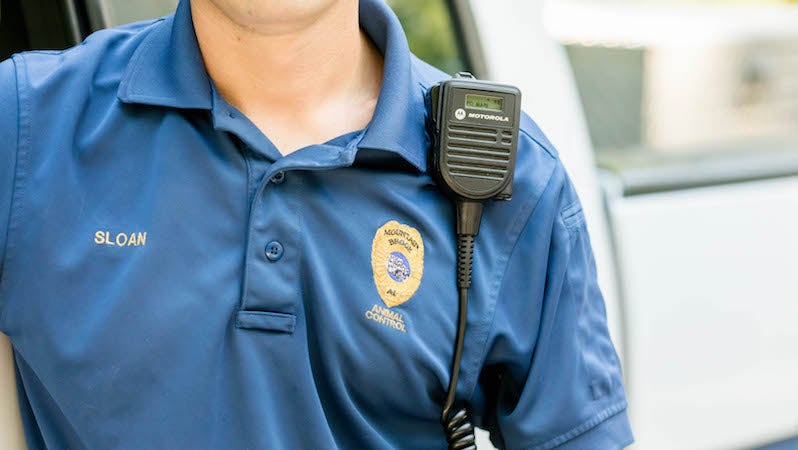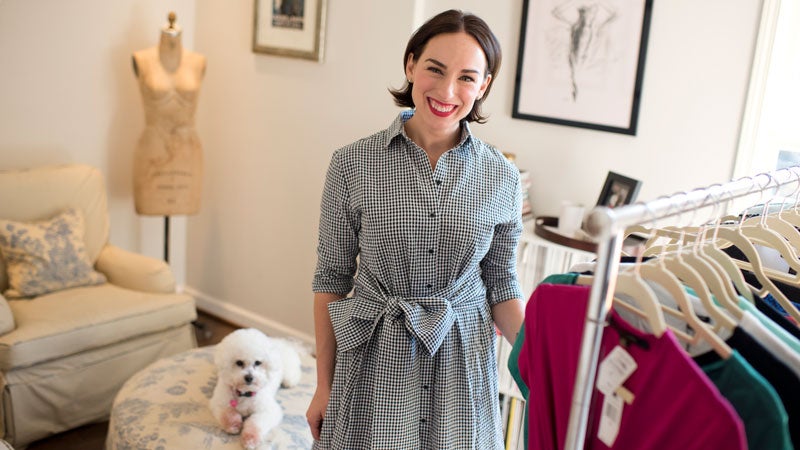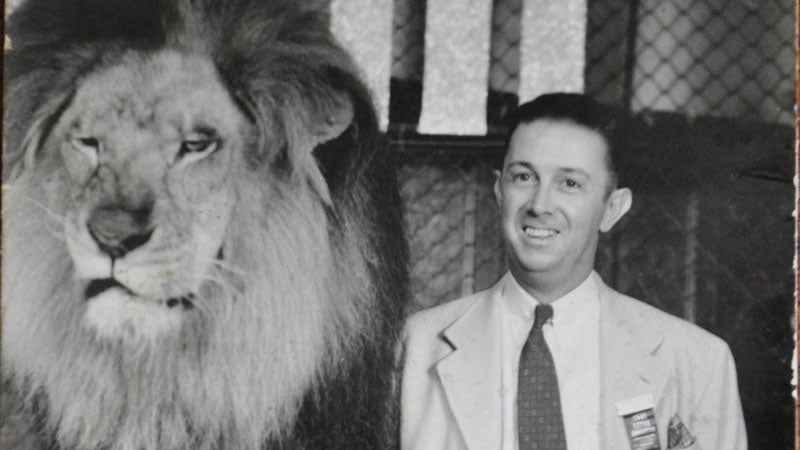Tommy Mayfield can talk to you about any statistic you want to know about the babysitting app he and his wife, Ginger, started in 2017, but he’d be just as happy to tell you stories instead.
One of the Mayfields’ friends with two kids under age 5 once posted a babysitting job on the Wyndy app at 5 a.m., had a sitter show up at 7 a.m. and was able to make it to a meeting by 8 a.m. Another woman they heard about went into labor and found all of her close friends and family couldn’t come watch her child while she went to the hospital, only to open Wyndy and book a sitter in a matter of minutes.
The Mayfields’ daughters Polly, a fourth-grader at Crestline Elementary, and Louise, a second-grader, can tell you about the Wyndys who have worked for their family on a regular basis too. “I remember one of the last days (one sitter could come) one of my girls balled because she loved her so much,” Tommy says. “As a user of Wyndy you see the value of sitters not just as a body to keep your kids alive, but in how they really invest in the kids and get to know them. What we built is working.”

The Mayfield Family. Photo by Lauren Ustad.
But back in 2016, Tommy was a lawyer with little idea what would be on the horizon. At the time, their daughters were young, Tommy was working at a larger firm, and Ginger was getting a master’s degree at night. It was a stressful season, and often finding a babysitter made life all the more stressful. There were apps that would provide you a car ride or other basic services and websites where you could find babysitters—but they hadn’t been vetted in any way, thus putting the onus on the parents to do so. Why not develop a babysitting service that would assist families like theirs? “In five years if it’s not Wyndy, it will be something,” Tommy remembers thinking.
Armed with degrees in English and law, Tommy admits he has an unorthodox resume to start a tech company, but that didn’t stop him. By late 2016 he and Ginger started developing an app that would launch in spring 2017 with a name inspired by the maternal figure in the story of Peter Pan. Today it’s in more than 20 markets in the Southeast.
But first they talked to parents and sitters alike in focus groups to understand their challenges and pain points in babysitting. For parents a key component is trust, so they set up a system where all sitters must be full time college or graduate students and apply to serve as Wyndy sitters, a process that includes a video interview with the Wyndy team and background check.
Wyndy statistics attest to how they took into account offering convenience and reliability too. Today one in five Wyndy jobs is posted, booked and completed on the same day, and the average time to connect to a sitter is less than 30 seconds. “It’s transformed the way we think about babysitting,” Tommy says. “It used to be that if we wanted to go out on a Friday night we had to start looking for a sitter on Monday morning. With Wyndy I can post a job on Friday afternoon and have a sitter there in an hour.”
The platform is set up to give parents exactly what they are searching for too. Want a Samford University nursing major who is involved in a certain set of activities? You can filter for that. Want a sitter that your friends have used? There are social media components that allow you to find that too. “We took the word of mouth recommendation and overlaid technology onto it,” Tommy explains.
For college students Wyndy both gives them flexible work and connections to families they might not have if they are new to town. Tommy has seen individuals make up to $1,000 income in a month and says that Wyndy has put almost $3 million into the wallets of sitters in Birmingham alone. More than that, he’s also heard countless stories of how relationships are built both in the moment and to help sitters make professional connections for their future pursuits too.
Back in 2017, Tommy took the plunge and left practicing law to pursue Wyndy full time, and today eight people are on the Wyndy team, including developers, marketing and customer success team members who all work out of Innovation Depot in downtown Birmingham. (Ginger worked at Wyndy full time from 2017 to 2018 before starting her own private college guidance counseling venture, Mayfield College Advising.)
Together the Wyndy team took the app from Birmingham to Nashville, where the Mayfields met at Vanderbilt and had connections already, and now to more than 20 additional cities across 10 Southeastern states, including Memphis, Jackson, New Orleans, Chattanooga, Atlanta, Columbia and Richmond.
Pretty early on in Wyndy’s story, people started asking Tommy about other applications they could create with Wyndy technology. Would they work with elder care? Or pet setting? Or substitute teachers?
For a while, his mindset was to focus on one thing and doing it well before branching out, but the spark to branch out came in late 2018 when one of Wyndy’s investors approached him about a venture in the dental space. Dental practices face similar challenges to babysitting when they need to replace a hygienist or other staff person quickly, Tommy and his team learned, and they often lose revenue in the in between time.
That’s also when Tommy connected with a fellow Alabamian, Allison Springer, who had built a successful business over the past decade that solved this dental staffing issue but with zero technology. Instead of an app, you’d call her, and she’d set to matchmaking dental practices with hygienists or other dental service providers who could fill in for the practice. She’d already built a network of dental practice clients, and Tommy quickly saw she had insight into the industry that the Wyndy team did not. So in June 2019, they acquired Allison’s business and brought her onto our team to build a new web-based platform that could be used from any device, keeping the same name theme with inspiration from Allison herself. It would be called Alysyn.
Eight months or so later, the technology was up and running, and the process of onboarding service providers and practices onto the Alysyn platform began this summer. But Alysyn is bigger than the dental industry too. “When we decided to undertake this initiative, we built a product that was industry agnostic,” Tommy explains. “We took a lot of lessons from Wyndy, but we built it from scratch.” And a key to that building process was that it can be adapted to other industries with a base technology they named Eve—the mother of all platforms, the way they see it. Stay tuned on what’s to come in that space.
Speaking of new adaptations, Wyndy saw a significant reduction in its typical jobs in the COVID-19 pandemic, but other opportunities arose for medical workers who still needed childcare. So Wyndy partnered with UAB and other hospital systems who offered to reimburse babysitting costs for their essential medical personnel. And that in turn sparked the groundwork for future corporate partnerships.
The app also allowed existing Wyndy users to donate Wyndy credits to first responders and ended up raising around $5,000 in Wyndy credit for them. Getting these health-care related initiatives setup was time-consuming, Tommy says, but well worth it. “It was amazing to see our community of users come together and support those who were working so hard during the pandemic,” he says.
With many childcare centers closed in the pandemic too, Wyndy entered the nanny-finding space for the first time. This year they started a summer sitter program time to match parents with sitters who can come at least 15 times during the summer. And if this summer program goes well, Tommy says they will figure out how to layer it into their Wyndy technology.
But wherever Wyndy, Alysyn and Eve venture in the future, Tommy knows the key will continue to be relationships and service, just as it has been from the beginning.











